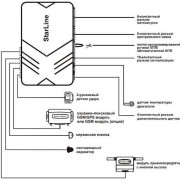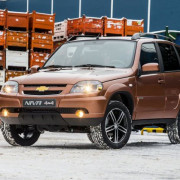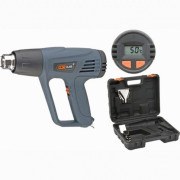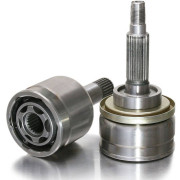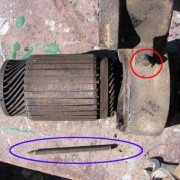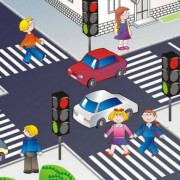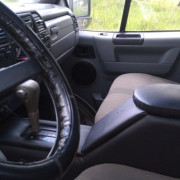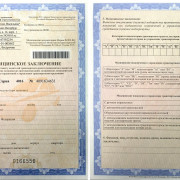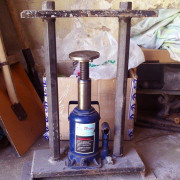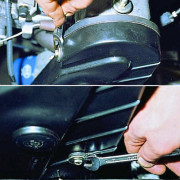«тойота королла» 2022: особенности и технические характеристики модели
Содержание:
Кузов и салон
Кузов относит новинку 2022 года к собрату по модельному ряду «Тойоте Камри». Но и здесь прослеживаются следы рестайлинга.
Пространство, объем, вес
Масса машины – 1385 кг, топливный бак вмещает 50 л бензина Аи-95. За счет широкой колесной базы (2700 мм) в салоне с комфортом могут расположиться 5 взрослых пассажиров.
Объем багажника (470 л) предполагает семейные путешествия, однако не по бездорожью: клиренс авто всего 150 мм.
Размеры
Автомобиль получил следующие габариты (ДхШхВ): 4630х1780х1435 мм. Сниженный центр тяжести способствует отличной устойчивости «Короллы» 2022 на дороге, что демонстрирует видеообзор титулованного бренда из Японии.
https://youtube.com/watch?v=kkXWnCKZiCk
Технические характеристики «Тойота Королла Кросс» 2022
Машина последней генерации сходит с конвейера с 2018 года, поэтому в отношении Toyota Corolla Cross 2022 речь идет о рестайлинге. Обновления коснулись технических характеристик более, чем внешности бестселлера.
«Тойота Королла Кросс» 2022
Изменения ТТХ компактного кроссовера впечатляют. Атмосферный 4-цилиндровый 1,6-литровый двигатель с многоточечным впрыском при 6050 об/мин выдает 122 л. с. Трансмиссия: в базе – 6-ступенчатая механика, в дорогих версиях – вариатор.
Привод передний. В подвеске использованы стойки Макферсона спереди и многорычажка – сзади. Тормоза по кругу дисковые. Средний расход топлива – 6,3 л на 100 км, разгон до первой сотни – 10,8 сек. Автомобиль разработан на прогрессивной платформе TNGA.
На фото: характерный «прищур» головных огней и боковая выштамповка.
Характерный «прищур» головных огней и боковая выштамповка
Цена и комплектации «Тойота Королла Кросс» 2022
Как и Toyota corolla Fielder («Филдер»), «Королла Кросс» в России представлена в шести комплектациях. Цена младшей модели «Стандарт» с кондиционером, регулируемыми зеркалами заднего вида, противотуманными фарами на корме начинается с 1 598 тысяч рублей.
Далее идут «Классик» (от 1 731 тыс. руб.), «Комфорт» (от 1 803 тыс. руб.), «Престиж» (от 1 989 тыс. руб.), GR Sport с 7-дюймовой мультимедийной системой (от 1 892 тыс. руб.). Покупка «Престиж Safety» обойдется в 2 108 тыс. руб. В последней топовой версии собственники получат опции контроля усталости водителя, удержания полосы, а также круиз-контроль и проекционный дисплей.
Точную цену автомобиля в Москве и регионах РФ можно узнать на сайте компании-производителя.
Child seat anchors
Applies to 2020-22 models
| Overall evaluation |
G extra LATCH positions |
| Vehicle trim | L |
| Seat type | cloth |
This vehicle has 2 rear seating positions with complete child seat attachment (LATCH) hardware.
It has 1 additional seating position with a tether anchor and the ability to borrow lower anchors from the other seating positions.
Note: When anchors are borrowed, they aren’t available to use in their designated positions.
| Overall evaluation |
G extra LATCH positions |
| Vehicle trim | L |
| Seat type | cloth |
123
| G | Good |
| A | Acceptable |
| M | Marginal |
| P | Poor |
| Seating positions that rely on borrowed lower anchors or have only a tether anchor available are not rated. | |
| thether anchor symbol | Tether anchor |
| lower anchor symbol | Lower anchors |
| Lower anchor(s) can be borrowed from adjacent positions(s) | |
| No hardware available |
Details by seating position
| 1 | |
|---|---|
| Tether anchor | |
| easy-to-find location | |
| no other hardware could be confused for anchor | |
| Lower anchors | |
| not too deep in seat | |
| not too much force needed to attach | |
| easy to maneuver around anchors | |
| 2 | |
| Tether anchor | |
| easy-to-find location | |
| no other hardware could be confused for anchor | |
| Lower anchors | |
| Can be borrowed from 1 and 3 | |
| 3 | |
| Tether anchor | |
| easy-to-find location | |
| no other hardware could be confused for anchor | |
| Lower anchors | |
| not too deep in seat | |
| not too much force needed to attach | |
| easy to maneuver around anchors |
Technical measurements for this test
Seat position 21
3
| Lower anchor A | |
|---|---|
| Open access rated | Yes |
| Depth | Visible |
| Force (lbs) | |
| Clearance angle (degrees) | 75 |
| Lower anchor B | |
| Open access rated | Yes |
| Depth | Visible |
| Force (lbs) | |
| Clearance angle (degrees) | 75 |
| Tether anchor | |
| Location | Rear deck |
| Confusing hardware present | No |
| Has contrasting label within 3 inches of tether anchor | No |
Seat position 22
2
| Lower anchor A | |
|---|---|
| Lower latch is shared for this seat position | |
| Lower anchor B | |
| Lower latch is shared for this seat position | |
| Tether anchor | |
| Location | Rear deck |
| Confusing hardware present | No |
| Has contrasting label within 3 inches of tether anchor | No |
Seat position 23
1
| Lower anchor A | |
|---|---|
| Open access rated | Yes |
| Depth | Visible |
| Force (lbs) | |
| Clearance angle (degrees) | 77 |
| Lower anchor B | |
| Open access rated | Yes |
| Depth | Visible |
| Force (lbs) | |
| Clearance angle (degrees) | 78 |
| Tether anchor | |
| Location | Rear deck |
| Confusing hardware present | No |
| Has contrasting label within 3 inches of tether anchor | No |
Small overlap front: driver-side
Rating applies to 2019-22 models
Tested vehicle: 2019 Toyota Corolla SE 4-door hatchback
The Toyota Corolla hatchback was redesigned for the 2019 model year. It replaces the Corolla iM hatchback. The Toyota Corolla sedan was redesigned for the 2020 model year (the listed ratings do not apply to the 2019 Corolla sedan). Driver-side small overlap frontal ratings are assigned by the Institute based on a test of a 2019 Corolla hatchback conducted by Toyota as part of .
| Overall evaluation | G |
|---|---|
| Structure and safety cage | G |
| Driver injury measures | |
| Head/neck | G |
| Chest | G |
| Hip/thigh | G |
| Lower leg/foot | G |
| Driver restraints and dummy kinematics | G |
Technical measurements for this test
Measures of occupant compartment intrusion on driver side
| Test ID | VTN1809 |
|---|---|
| Lower occupant compartment | |
| Lower hinge pillar max (cm) | 5 |
| Footrest (cm) | 2 |
| Left toepan (cm) | 2 |
| Brake pedal (cm) | 5 |
| Parking brake (cm) | |
| Rocker panel lateral average (cm) | 1 |
| Upper occupant compartment | |
| Steering column | 4 |
| Upper hinge pillar max (cm) | 2 |
| Upper dash (cm) | 4 |
| Lower instrument panel (cm) | 4 |
Driver injury measures
| Test ID | VTN1809 |
|---|---|
| Head | |
| HIC-15 | 203 |
| Peak gs at hard contact | no contact |
| Neck | |
| Tension (kN) | 0.9 |
| Extension bending moment (Nm) | 6 |
| Maximum Nij | 0.17 |
| Chest maximum compression (mm) | 25 |
| Femur (kN) | |
| Left | 0.9 |
| Right | 0.5 |
| Knee displacement (mm) | |
| Left | 1 |
| Right | |
| Knee-thigh-hip injury risk (%) | |
| Left | |
| Right | |
| Maximum tibia index | |
| Left | 0.54 |
| Right | 0.46 |
| Tibia axial force (kN) | |
| Left | 1.6 |
| Right | 2.0 |
| Foot acceleration (g) | |
| Left | 78 |
| Right | 60 |
Moderate overlap front
Rating applies to 2019-22 models
Tested vehicle: 2019 Toyota Corolla SE 4-door hatchback
The Toyota Corolla hatchback was redesigned for the 2019 model year. It replaces the Corolla iM hatchback. The Toyota Corolla sedan was redesigned for the 2020 model year (the listed ratings do not apply to the 2019 Corolla sedan). Moderate overlap frontal ratings are assigned by the Institute based on a test of a 2019 Corolla hatchback conducted by Toyota as part of .
| Overall evaluation | G |
|---|---|
| Structure and safety cage | G |
| Driver injury measures | |
| Head/neck | G |
| Chest | G |
| Leg/foot, left | G |
| Leg/foot, right | G |
| Driver restraints and dummy kinematics | G |
Technical measurements for this test
Measures of occupant compartment intrusion on driver side
| Test ID | VTF1817 |
|---|---|
| Footwell intrusion | |
| Footrest (cm) | 1 |
| Left (cm) | 4 |
| Center (cm) | 2 |
| Right (cm) | 4 |
| Brake pedal (cm) | 5 |
| Instrument panel rearward movement | |
| Left (cm) | -1 |
| Right (cm) | -3 |
| Steering column movement | |
| Upward (cm) | |
| Rearward (cm) | -3 |
| A-pillar rearward movement (cm) | 1 |
Driver injury measures
| Test ID | VTF1817 |
|---|---|
| Head | |
| HIC-15 | 204 |
| Peak gs at hard contact | no contact |
| Neck | |
| Tension (kN) | 1.1 |
| Extension bending moment (Nm) | 15 |
| Maximum Nij | 0.20 |
| Chest maximum compression (mm) | 28 |
| Legs | |
| Femur force — left (kN) | 0.8 |
| Femur force — right (kN) | 0.7 |
| Knee displacement — left (mm) | 1 |
| Knee displacement — right (mm) | 1 |
| Maximum tibia index — left | 0.72 |
| Maximum tibia index — right | 0.62 |
| Tibia axial force — left (kN) | 2.2 |
| Tibia axial force — right (kN) | 2.4 |
| Foot acceleration (g) | |
| Left | 69 |
| Right | 75 |
Seat belt reminders
Rating applies to 2022 models
| Overall evaluation | M |
|---|---|
| Front row | |
| Unbelted occupant alert (audible & visual) | |
| Initiation time | |
| Duration | Long enough (90+ seconds) |
| Volume | |
| Audio frequency | |
| Second row | |
| Startup status alert (visual) | |
| Initiation time | |
| Duration at least 60 seconds | |
| Belt disengaged alert (audible & visual) | |
| Initiation time | |
| Duration at least 30 seconds | |
| Volume | |
| Audio frequency |
Technical measurements for this test
| Background cabin sound pressure level at 24 km/h | 55 dB |
| Audible signal sound pressure level at 24 km/h | 76 dB |
| Difference between background and signal | 21.3 dB |
| Background cabin sound pressure level at 40 km/h | 58 dB |
| Audible signal sound pressure level at 40 km/h | 77 dB |
| Difference between background and signal | 18.3 dB |
| Dominant audio frequency | 800 Hz |
Side: original test
Rating applies to 2019-22 models
Tested vehicle: 2019 Toyota Corolla SE 4-door hatchback
The Toyota Corolla hatchback was redesigned for the 2019 model year. It replaces the Corolla iM hatchback. The Toyota Corolla sedan was redesigned for the 2020 model year (the listed ratings do not apply to the 2019 Corolla sedan).
Two side tests of a 2019 Corolla hatchback were conducted, one by the Institute and the other by Toyota as part of . Ratings are based on both tests and apply to both the hatchback and redesigned sedan.
| Overall evaluation | G |
|---|---|
| Structure and safety cage | G |
| Driver injury measures | |
| Head/neck | G |
| Torso | G |
| Pelvis/leg | G |
| Driver head protection | G |
| Rear passenger injury measures | |
| Head/neck | G |
| Torso | G |
| Pelvis/leg | G |
| Rear passenger head protection | G |

View of the vehicle and barrier (left edge of photo) just after the Institute’s crash test.

View of the vehicle after the crash with doors removed, showing the side airbags and damage to the occupant compartment (Institute test car shown).

Smeared greasepaint shows where the driver dummy’s head was protected from being hit by hard structures by the side curtain airbag in the Institute’s test.

Smeared greasepaint shows where the rear passenger dummy’s head was protected by the side airbag.
Technical measurements for this test
Measures of occupant compartment intrusion on driver side
| Test ID | VTS1814 | CES1809 |
|---|---|---|
| B-pillar to longitudinal centerline of driver’s seat (cm) | -17.0 | -19.5 |
| Negative numbers indicate the amount by which the crush stopped short of the seat centerline. |
Driver injury measures
| Test ID | VTS1814 | CES1809 |
|---|---|---|
| Head HIC-15 | 294 | 181 |
| Neck | ||
| Tension (kN) | 1.1 | 0.8 |
| Compression (kN) | 0.2 | 0.1 |
| Shoulder | ||
| Lateral deflection (mm) | 23 | 21 |
| Lateral force (kN) | 1.2 | 1.4 |
| Torso | ||
| Maximum deflection (mm) | 31 | 25 |
| Average deflection (mm) | 28 | 20 |
| Maximum deflection rate (m/s) | 4.20 | 3.52 |
| Maximum viscous criterion (m/s) | 0.42 | 0.24 |
| Pelvis | ||
| Iliac force (kN) | 3.1 | 2.5 |
| Acetabulum force (kN) | 1.8 | 1.2 |
| Combined force (kN) | 4.8 | 3.6 |
| Left femur | ||
| L-M force (kN) | 0.8 | 0.7 |
| L-M moment (Nm) | 118 | 112 |
| A-P moment (Nm) | 20 | 35 |
Passenger injury measures
| Test ID | VTS1814 | CES1809 |
|---|---|---|
| Head HIC-15 | 111 | 127 |
| Neck | ||
| Tension (kN) | 0.1 | 0.2 |
| Compression (kN) | 0.8 | 0.6 |
| Shoulder | ||
| Lateral deflection (mm) | 24 | 23 |
| Lateral force (kN) | 0.8 | 1.0 |
| Torso | ||
| Maximum deflection (mm) | 26 | 23 |
| Average deflection (mm) | 22 | 20 |
| Maximum deflection rate (m/s) | 3.20 | 2.28 |
| Maximum viscous criterion (m/s) | 0.31 | 0.23 |
| Pelvis | ||
| Iliac force (kN) | 0.1 | 0.0 |
| Acetabulum force (kN) | 1.2 | 1.1 |
| Combined force (kN) | 1.2 | 1.1 |
| Left femur | ||
| L-M force (kN) | 1.8 | 1.4 |
| L-M moment (Nm) | 236 | 226 |
| A-P moment (Nm) | 79 | -102 |
Экстерьер нового кроссовера
Раскосая головная оптика и узкая радиаторная решетка придали облику Toyotas еще больше динамизма и агрессии. По бокам массивного переднего бампера вставлены фактурные разрезы с С-образными воздухозаборниками и встроенными противотуманками.
Боковины имеют изящную выштамповку, мягко ниспадающую от задних фар к переднему крылу. На корме эффектно смотрятся тонкие фонари с декоративной металлической накладкой между ними.
Сдержанный стиль салона можно оценить по фото.
Салон Toyota
Интерьер нового кроссовера
Салон не блещет изысками дизайнерских идей. Но минималистический стиль радует продуманным, хорошо организованным пространством, а обилие самых современных атрибутов не соответствует бюджетному сегменту.
Доска приборов с двухуровневым козырьком глубоко утоплена в соответствующем отсеке. Сенсорный экран мультимедиа расположен над торпедо, ниже – блок управления климат-контролем. Сидения с электроприводом регулируются по многим позициям. Качество отделочных материалов стало выше.
Toyota corolla 2022
Дизайн интерьера «Короллы Кросс» 2022 на фотографии:
Интерьер «Короллы Кросс» 2022
Small overlap front: passenger-side
Rating applies to 2019-22 models
Tested vehicle: 2019 Toyota Corolla 4-door hatchback
The Toyota Corolla hatchback was redesigned for the 2019 model year. It replaces the Corolla iM hatchback. The Toyota Corolla sedan was redesigned for the 2020 model year (the listed ratings do not apply to the 2019 Corolla sedan). Passenger-side small overlap frontal ratings are assigned by the Institute based on a test of a 2019 Corolla hatchback conducted by Toyota as part of .
| Overall evaluation | G |
|---|---|
| Structure and safety cage | G |
| Passenger injury measures | |
| Head/neck | G |
| Chest | G |
| Hip/thigh | G |
| Lower leg/foot | G |
| Passenger restraints and dummy kinematics | G |
| Driver injury measures | |
| Head/neck | G |
| Chest | G |
| Hip/thigh | G |
| Lower leg/foot | G |
| Driver restraints and dummy kinematics | G |
Technical measurements for this test
Measures of occupant compartment intrusion on passenger side
| Test ID | VTP1826 |
|---|---|
| Lower occupant compartment | |
| Lower hinge pillar max (cm) | 5 |
| Footrest (cm) | 1 |
| Right toepan (cm) | 4 |
| Center toepan (cm) | 4 |
| Rocker panel lateral average (cm) | 1 |
| Upper occupant compartment | |
| Center dash (cm) | 2 |
| Upper hinge pillar max (cm) | 4 |
| Upper dash (cm) | 4 |
| Right lower dash (cm) | 3 |
Passenger injury measures
| Test ID | VTP1826 |
|---|---|
| Head | |
| HIC-15 | 151 |
| Peak gs at hard contact | no contact |
| Neck | |
| Tension (kN) | 0.9 |
| Extension bending moment (Nm) | 44 |
| Maximum Nij | 0.44 |
| Chest maximum compression (mm) | 22 |
| Femur (kN) | |
| Left | 0.4 |
| Right | 1.6 |
| Knee displacement (mm) | |
| Left | 2 |
| Right | 4 |
| Knee-thigh-hip injury risk (%) | |
| Left | |
| Right | |
| Maximum tibia index | |
| Left | 0.56 |
| Right | 0.64 |
| Tibia axial force (kN) | |
| Left | 2.7 |
| Right | 2.0 |
| Foot acceleration (g) | |
| Left | 52 |
| Right | 46 |
Driver injury measures
| Test ID | VTP1826 |
|---|---|
| Head | |
| HIC-15 | 95 |
| Peak gs at hard contact | no contact |
| Neck | |
| Tension (kN) | 1.0 |
| Extension bending moment (Nm) | 8 |
| Maximum Nij | 0.19 |
| Chest maximum compression (mm) | 29 |
| Femur (kN) | |
| Left | 0.6 |
| Right | 0.8 |
| Knee displacement (mm) | |
| Left | 1 |
| Right | 2 |
| Knee-thigh-hip injury risk (%) | |
| Left | |
| Right | |
| Maximum tibia index | |
| Left | 0.31 |
| Right | 0.28 |
| Tibia axial force (kN) | |
| Left | 0.0 |
| Right | 0.8 |
| Foot acceleration (g) | |
| Left | 35 |
| Right | 56 |
